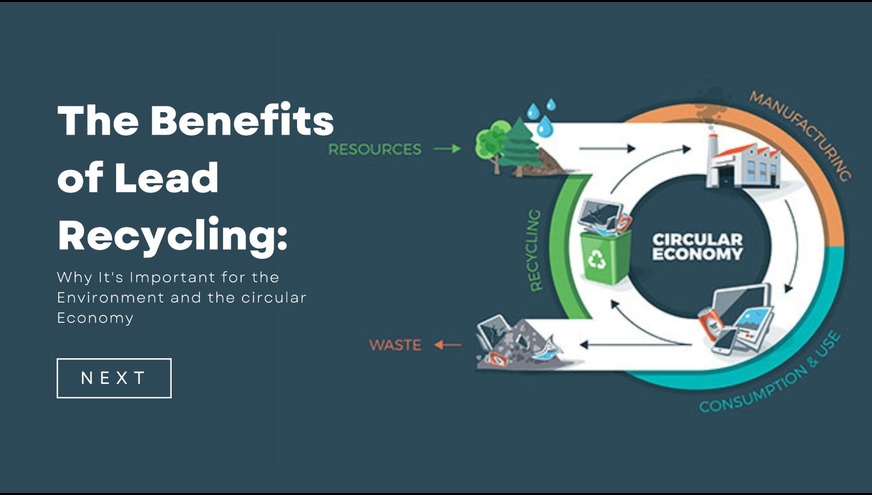Recycling lead is a shining example of sustainability, with many advantages for the environment and the circular economy. In this blog, we discuss the critical role that recycling lead plays in encouraging environmental stewardship and the circular economy.

Benefits of Lead Recycling
Recycling lead is an essential component of sustainable resource use, not just a waste management strategy. We can expect several financial and environmental benefits from recycling lead that have an impact on many different industries.
Lead Recycling: Why It's Important for the Environment
Preserving Natural Resources
The preservation of natural resources is achieved by lead recycling, which dramatically lowers the need for virgin lead ore mining. We reduce the strain on ecosystems and protect biodiversity in areas impacted by mining operations by prolonging the life of current lead deposits.
Reducing Environmental Pollution
Lead-containing items should be disposed of properly to avoid contaminating the land and water and endangering human and wildlife health. By keeping lead out of landfills and incinerators and away from the environment, lead recycling reduces the hazards associated with lead pollution and the damage it poses to ecosystems.
Minimizing Energy Consumption
Lead recycling uses far less energy than primary lead production. Recycling instead of extracting fossil fuels lowers greenhouse gas emissions and fossil fuel use, helping to mitigate climate change and advancing more sustainable energy sources in the future.
Why It's Important for the Circular Economy
Promoting Resource Efficiency
The idea of completing the resource use loop in the circular economy is best shown by lead recycling. Reintroducing lead materials into the manufacturing cycle reduces waste output and maximizes resource use, resulting in a more effective and long-lasting economic structure.
Encouraging Eco-Friendly Supply Chains
Adopting lead recycling encourages supply chains to become robust and sustainable. Businesses that place a high priority on lead recycling show their dedication to ethical sourcing and environmental responsibility, which builds customer loyalty and confidence while lessening the environmental impact of their operations.
Creating Economic Opportunities
Recycling lead helps local communities' economies grow by creating job opportunities. Lead recycling generates a value chain that sustains livelihoods, spurs innovation, and advances the socioeconomic development of places globally, spanning from collecting and sorting to processing and manufacturing.
In summary, recycling lead turns out to be essential to protecting the environment and advancing the ideas of the circular economy. Through acknowledging the significance of lead recycling and advocating for its extensive implementation, we may create the foundation for a more sustainable future marked by economical prosperity, environmental preservation, and resource efficiency.



